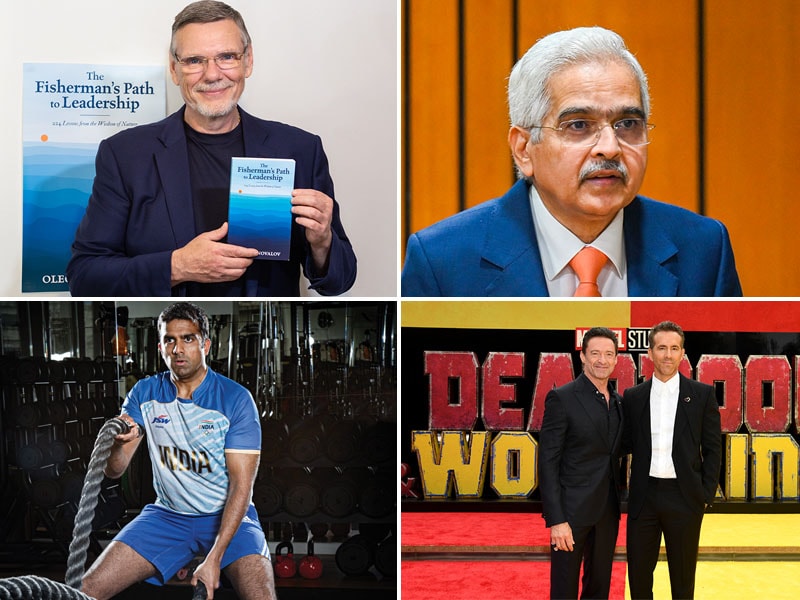
1) Building India’s Olympic ecosystem
If you were one of the citizens of the world engulfed in what is called the biggest theatre of sports, from July 26 to August 11, you would not have missed one Parth Jindal, vehemently cheering on India during the Women’s Team Table Tennis Round of 16 against Romania. The winning shrieks of Sreeja Akula, Manika Batra, and Archana Kamath were matched by the enthusiasm of the founder of JSW Sports and Inspire Institute of Sports (IIS). This enthusiasm is not limited to buying the tickets and waving the flag from the stands. The Jindal scion has invested years and money in rebuilding India’s Olympic ecosystem. Some shining outcomes have risen in the form of Neeraj Chopra, Sakshi Malik, and Bajrang Punia. Here’s how Jindal is building on India’s Olympic hopes.2) Inside Disney’s box office resurgence
2023 was the year when trade analysts were worried about Disney’s performance at the box office. Earlier, they had bashed the movie studio’s decision to release films such as Soul and Luca that had great box office potential directly on streaming platforms. They also picked on the decision to make a lacklustre Ant-Man and the Wasp: Quantumania and The Marvels, and analysed the Marvel Studios fatigue. The tentpole, once considered too big to fail, was no longer living up to the expectations of its fans. 2024 seems to have turned the tide as Pixar and Marvel relied on their trusted sequels–Inside Out 2 and Deadpool & Wolverine–and crossed the $1 billion mark at the global box office. What changed? Various studio heads under the House of Mouse umbrella present their theories.3) Importance of funding climate tech
In the latest episode of the Tech Conversation podcast, Simmi Sareen and Shravan Shankar, founders of Climake, a climate finance platform provider and ecosystem builder, discuss the top takeaways from their latest annual report on the state of climate finance in India. The report reveals a yawning gap between current private funding of climate action and what is needed–that a focus on climate adaptation in India is under-represented in policy, finance, and innovation. The duo highlights the importance of climate adaptation and not just mitigation, talks about ways to bridge the pipeline gap between early-stage ventures and larger companies, and discusses five climate adaptation areas they’ve identified that offer the best opportunities from the point of view of VCs.
Discover
1) Bank deposits: Arduous challenge
Borrowing the lines from Aatmaram Tukaram Bhide, some oldies can be heard reminiscing about when bank deposits were the safest saving option, and people could actually spend their retired life just living off the interest. For various reasons, banks kept reducing the interest rates on deposits. That obviously made other asset classes with higher returns more attractive to consumers. Now Finance Minister Nirmala Sitharaman and Reserve Bank of India (RBI) Governor Shaktikanta Das have laid out a tough assignment for banks: bulk up bank deposits. For most banks, credit growth, in terms of advances, has continued to outpace the growth in deposits in recent quarters, which has become a matter of concern for the RBI governor. Here’s an in-depth analysis of the governor’s fears and challenges in front of the banks.2) Counterstrike: IndiGo vs Air India
Nobody knows Indian skies better than IndiGo, having proven that in the past 18 years. From its launch in 2006 into a market that was dominated by the likes of Jet Airways and Air Deccan to now cornering over 60 percent of the Indian market, IndiGo has pushed through a low-cost proposition that’s become something of a norm and even a case study on surviving the brutal Indian skies, all while raking in impressive profits. Now, it is attempting to reinvent luxury air travel. Besides the business class, the airline is also launching a loyalty frequent flyer program. Why is this looking like a pre-emptive strike on Air India? Is it a sort of make-or-break moment for India’s largest airline? Here are some answers.3) How to be a strong leader
Oleg Konovalov is a business educator, consultant and C-suite coach. He is also the author of The Fisherman’s Path To Leadership: 224 Lessons From The Wisdom Of Nature. He argues that nature is the best leadership coach ever–humans are only a part of nature. We can’t create or invent anything smarter or better than nature does. It is an infinite source of learning. Living in an era of artificial intelligence (AI), we neglect the fact that no AI can beat or will ever change the emotions and feelings of a human that is connected with nature, he writes. Here’s why he believes we have enough problem-solvers and need more solution-finders.4) India’s opportunity with Sovereign AI
While the Q&A above talks about leadership beyond AI, there is no denying that humans cannot escape this technological advancement. It goes beyond the trending concepts and products such as generative AI or ChatGPT. Holding on to the data generated by its citizens in the tech age is important for every country. However, the Sovereign AI framework is emerging as a pivotal element in the strategic calculus of states. It encapsulates the burgeoning trend of countries harnessing AI to bolster their technological autonomy, economic vitality, and security apparatus. The US and China are at the forefront of this race, pouring billions into AI research and development. Researchers at IIT-Bombay argue why India needs to lead in this domain.







